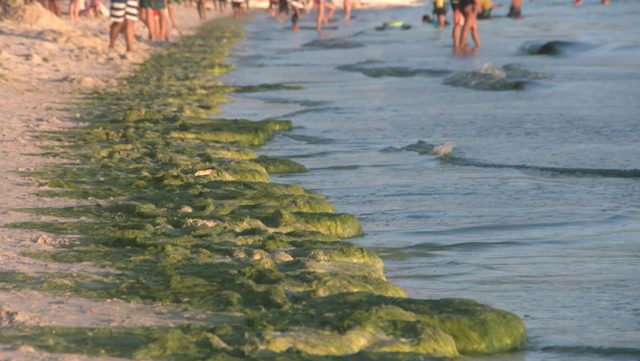SUMMARY
This is AI generated summarization, which may have errors. For context, always refer to the full article.

AKLAN, Philippines – The local government of Malay in Aklan province is considering a “war” against wastewater in top tourist spot Boracay Island.
A month into Boracay’s 6-month closure, local officials are considering to implement a community-based approach to wastewater treatment in the island, working with German group Bremen Overseas Research and Development Association (BORDA).
Dubbed as “Black Water Shield Operation,” the operation is hinged on a short-term emergency plan to stop the discharge of wastewater in 4 major sites where drainage water is released.
BORDA will implement a decentralized water treatment system, a low-cost initiative which treats wastewater from small communities. BORDA has implemented the system in over 25 countries such as India, Nepal, Africa, Middle East, Cambodia, Laos, Indonesia, and the Philippines.
BORDA chief strategy officer Michael Aragon said that the group will propose comprehensive wastewater treatment system not only for the island, but for the entire municipality.
“Black Water operation will shield the entire Boracay during the time of rehabilitation and contain the actual dumping of wastewater in the open sea,” Aragon said.
With this development, BORDA will bring in German partners to further discuss the proposals to the Malay local council.
President Rodrigo Duterte ordered the closure of Boracay due to its environmental problems. A pipe in Bulabog Beach used to release wastewater straight to the sea, which led to the President calling the island a “cesspool.”
BORDA will craft a “bio-based” treatment system which will be built and become operational within months. It does not need electricity to operate.
According to Aragon, the project will have no forward cost to the local government.
The plan
One of the plans is to install collection tanks after the wastewater outfalls in the villages of Bulabog and Manoc-Manoc, as these are the villages with the most activities.
The tanks would intercept wastewater in identified outfalls and drainage systems.
“[We would] divert [the wastewater] to man-made, low-cost wastewater treatment based on BORDA technology, and transfer the treated water to a rehabilitated wetland,” Aragon explained.
BORDA will also initiate the replanting of mangroves and bamboos in the wetland called “Dead Forest” in Barangay Manoc-Manoc.
Boracay currently operates in a centralized system where wastewater is treated in plants. This does not include households and establishments that are not connected to the system.
Aragon noted that their approach will not “compete” with business activities, but rather “empower the local government” in protecting the island.
Improving Boracay’s sewerage system is among the government’s rehabilitation priorities. (READ: CHEAT SHEET: What to expect from Boracay closure)
In fact, Boracay Island Water Company has been tapped by the tourism department to improve the sewerage system in the island. Earlier this May, Boraway Water completed a diversion system allowing more households and establishments to connect to the company’s sewer network.
As of latest data, Boracay has 6,748 households and 2,267 establishments. Ninety percent of the households also have toilets, and a total of 953 establishments are connected to sewer lines. – Rappler.com
Add a comment
How does this make you feel?
There are no comments yet. Add your comment to start the conversation.